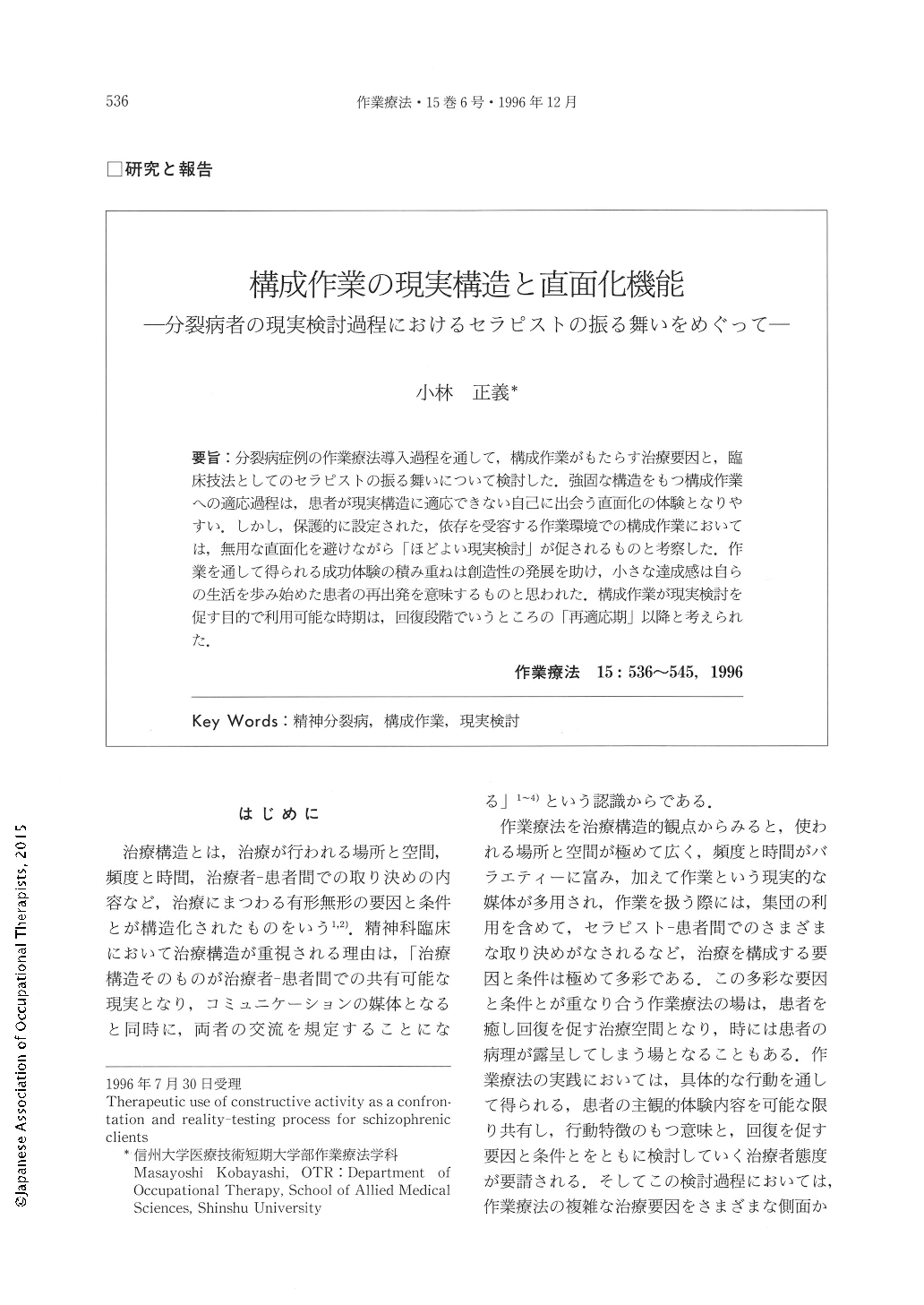Japanese
English
- 販売していません
- Abstract 文献概要
- 1ページ目 Look Inside
- 参考文献 Reference
- サイト内被引用 Cited by
要旨:分裂病症例の作業療法導入過程を通して,構成作業がもたらす治療要因と,臨床技法としてのセラピストの振る舞いについて検討した.強固な構造をもつ構成作業への適応過程は,患者が現実構造に適応できない自己に出会う直面化の体験となりやすい.しかし,保護的に設定された,依存を受容する作業環境での構成作業においては,無用な直面化を避けながら「ほどよい現実検討」が促されるものと考察した.作業を通して得られる成功体験の積み重ねは創造性の発展を助け,小さな達成感は自らの生活を歩み始めた患者の再出発を意味するものと思われた.構成作業が現実検討を促す目的で利用可能な時期は,回復段階でいうところの「再適応期」以降と考えられた.
The purpose of this paper is to discuss the therapeutic use of constructive activities in psychiatric occupational therapy. A case study of a schizophrenic male client is briefly presented and discussed to illustrate the confrontation and reality-testing processes which are brought about and facilitated by the use of constructive activities. These processes are supported by the holding environments of occupational therapy and relieve the burden on the client for pursuing an activity process and attaining successful results. The basic role of the occupational therapist is similar to that of the "good-enough-mother" as defined by D. W. Winnicott.
The following are significant results of the therapeutic use of constructive activities with schizophrenic clients who need to develop their sense of reality and feelings of security, especially in their recovery stages from acute schizophrenic episodes.
1. Constructive activities performed in a supportive and holding occupational therapy environment can provide a "good-enough reality-testing" experience by dealing with clients' dependency in a more adaptive and ego-supportive way.
2. Successful experiences and feelings of achievement gained through a step by step process with the therapist may enhance clients' motivation to become productive again and to restart creative daily life in spite of having been ill.
3. Constructive activities should be introduced after the "re-adaptive stage" in schizophrenic recovery phases as defined by Yoshimatsu, and the importance of the therapist's attitude is emphasized ; i. e., to share every aspect of clients' feelings and emotions encountered in activity processes.
4. Constructive activities, if the structure is too rigid or inflexible, may become a hazard and pose an overwhelming confrontation for schizophrenic clients with weak reality-testing, due to their inability to cope with the structural demands of a given activity.

Copyright © 1996, Japanese Association of Occupational Therapists. All rights reserved.


